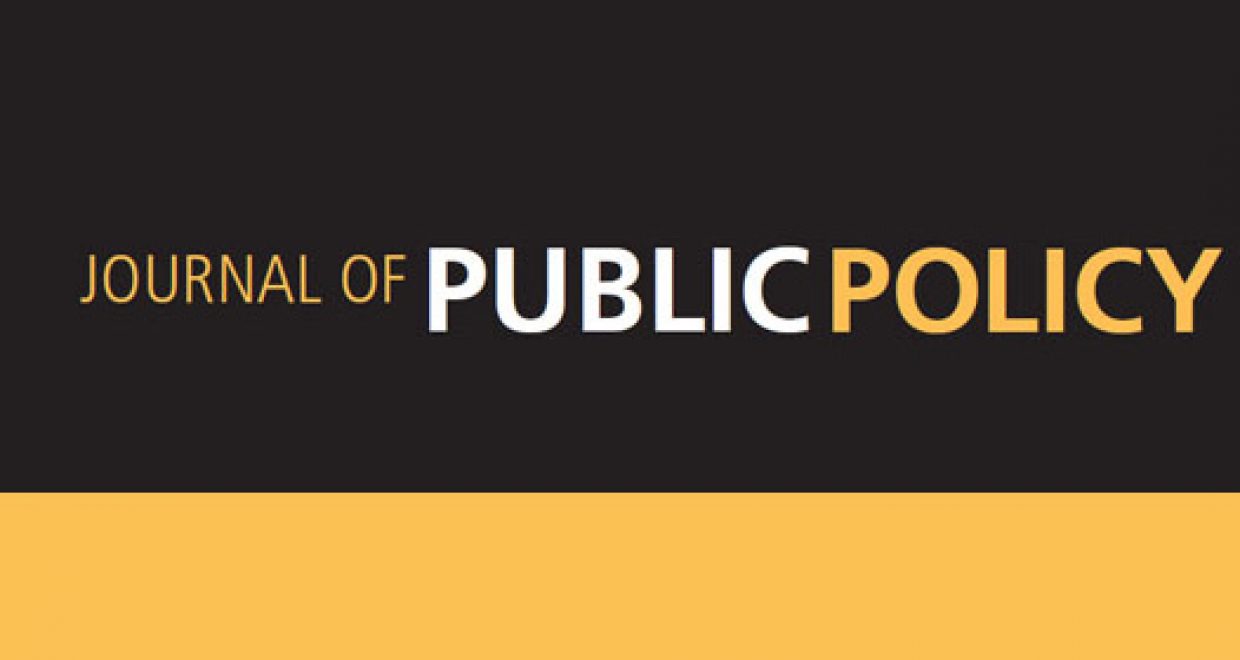Relationality: A Richly Different Lens for Analyzing Policy
Policy is often depicted as prescription –a set of rules by which services and functions are carried out in the public sphere. But, sometimes, it is obvious that policy processes deviate from these prescriptions and seem to be driven by a different logic. An older literature uses terms such as logics of implementation or of practice (going back even further, Weber used the term, charisma). But the question remains, what is this alternative logic that often drives the policy process? If it is not driven by a set of rules, how can we describe it?
In a recent article in the Journal of Public Policy, I propose a framework that captures such a logic. In this framework, policy processes are depicted as following a logic of relationship – i.e., actors acting in ways that sustain and reflect the web of relationships in the policy network. A great example of how this logic works was provided by Bourdieu’s description of the institution of gift exchange among the Kabyle. If the ritual is to preserve and respect the relationships between people, it cannot be seen to simply be a pro-forma tit-for-tat exchange. To do so, would make it seem perfunctory. Rather, it has to seem spontaneous and generative while still embodying some sort of reciprocity. The logic of it, which is necessarily complex (were it simple, it would be too transparent), is determined by the unique relationship between those participating in the gift-giving. We refer to this logic as relationality.
Even when there is a formal (or informal) set of rules that prescribes how policy is carried out, these are sometimes a pretext for someone to enter into a web of relationships and to work out policy through transactions and interactions that adhere to these relationships. In China, there is even a word for this (guanxi) that captures how, often, people will negotiate the real terms of policy behind the scenes. In another country setting the author is familiar with, he observed how local property taxes and resale fees in one city were set so prohibitively high, that owning a parcel of land seemed to be a net loss over the long run. One answer, evidently, is that this acts as a pretext for a property owner to enter into a complex web of relationships and work out the real arrangement. In an early statement of relationality, I described how policy is formalized as the imposition of a text (i.e., a law, regulation, prescribed lines of authority) upon a context, but how policy can actually be carried out in reverse, where policy actors work out arrangements that respect the relationships and practices of their local context, and that these arrangements then constitute policy as enacted. If there are rules that seem to emerge from this, such rules are epiphenomenal to the working and reworking of relationships.
The article draws on multiple examples from China, as we can find, in this context, a healthy degree of institutional experimentation. To explain the idea of relationality more clearly, the article temporarily draws a contrast between strongly rationalized systems (characterized by formal rules and lines of authority) and relational ones, depicting the former as classic “Weberian” systems and the latter as “Confucian”. One interesting case study concerns the emergence of new forms of rural property rights in China. The ongoing struggle to define what “one country, two systems” means for Hong Kong is another example. In both cases, we see policy evolving, perhaps not so much in formal terms but in the realm of the relational. For example, while the codified rules of the special administrative region of Hong Kong have scarcely been modified over the years, the evolving relationships between Hong Kongers, China’s central government, and others is generating policy change as we speak. As the ritual dance among political actors is enacted and re-enacted in Hong Kong, relationships evolve in ways that are influenced by both the Hong Kong society’s culture of freedom of thought and political action, and Beijing’s culture of authority (and many other facets of that complex relationship).
Relationships are co-constitutive with actors’ identities. Drawing from earlier work, the article employs a framework for describing relationships between actors as emerging from the meanings and resultant actions from an actor’s: identity as an individual, identity vis-à-vis the other, and identity of self-and-other. The idea is that, if we can richly describe the relationships, then we can better understand how and why policy emerges.
The discussion ends by weakening the strong typological contrasts drawn earlier in the article. The relational and rational ideals of policy are not alternatives to each other; rather, every policy system reflects them both. China should not be considered to be a relational system, while the U.S. (or other Western nation) a rationalist one, since each system is always both. It is my sentiment that the ethic of relationality is one that can be used in every context. For example, seen through a relational lens, it should not be incomprehensible for one president to call another and ask, by the way, to be a pal and investigate a political rival for us. (And yes, something can be both comprehensible and impeachable at the same time.)
The relational point of view has, for some years now, been a topic of growing interest in the fields of public administration and governance. I hope to see it become more and more central in the public policy literature in the years ahead.
– Raul Lejano, New York University
– The author’s Journal of Public Policy article is available free of charge until the end of June 2020.






